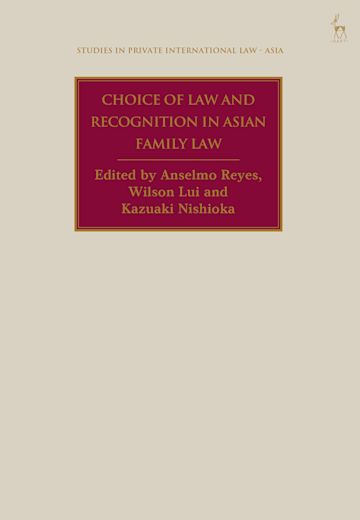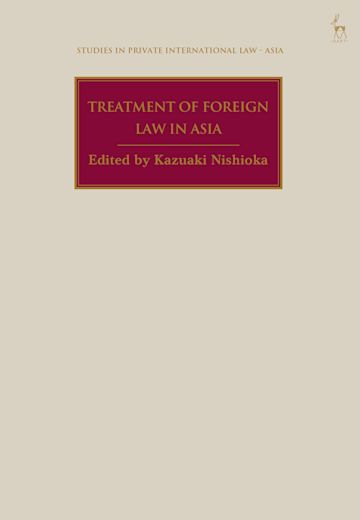Views
New Article on Non-Party Access to Court Documents and the Open Justice Principle
Written by Ana Koprivica Harvey
Ms Ana Koprivica Harvey (Max Planck Institute Luxembourg for International, European and Regulatory Procedural Law) recently posted a new paper in the MPILux Research Paper Series, titled Non-Party Access to Court Documents and the Open Justice Principle: The UK Supreme Court Judgment in Cape Intermediate Holdings Ltd v Dring. Below is an overview provided by the Author.
This article analyses the eagerly awaited the UK Supreme Court judgment in Cape Intermediate Holdings Ltd v Dring, unanimously delivered on 29th July 2019. Broadly speaking, the case concerned the scope and operation of the constitutional principle of open justice. More precisely, the questions before the Supreme Court were how much of the written material placed before a court in a civil action should be accessible to persons other than the parties to the proceedings, and how such access should be facilitated. Read more
Service of Process abroad: Lost in Translation
Written by Benedikt Windau
Benedikt Windau, Judge at the Oldenburg District Court (Landgericht Oldenburg), runs a very interesting blog (in German), focusing on German Civil Procedure. In one of his recent postings, he presented a very interesting judgment of the Frankfurt CoA, related to the Service Regulation. Upon my request, he prepared an English version of his post for our blog.
A recent ruling of the Frankfurt Court of Appeals (Docket No. 13 U 210/17) will potentially shake up the (German) law of cross-border service quite a bit, as it imposes new, hence unknown obligations on the plaintiff – and its legal counsel accordingly. Read more
First impressions from Kirchberg on the EAPO Regulation – Opinion of AG Szpunar in Case C-555/18
Written by Carlos Santaló Goris
Carlos Santaló Goris is a researcher at the Max Planck Institute Luxembourg for International, European and Regulatory Procedural Law, and Ph.D. candidate at the University of Luxembourg. He offers a summary and an analysis of AG Spuznar’s Opinion on the Case C-555/18, K.H.K. v. B.A.C., E.E.K.
I. Introduction
Less than three years after Regulation 655/2014 establishing a European Account Preservation Order (“the EAPO Regulation”) entered into force, the Court of Justice of the European Union (“CJEU”) released its first Opinion on this instrument. This regulation established a uniform provisional measure at the European level, which permits creditors the attachment of bank accounts in cross-border pecuniary claims. In many senses, the EAPO regulation represents a huge step forward, particularly in comparison to the ex-ante scenario regarding civil provisional measures in the Area of Freedom, Security and Justice. It is no accident that in the first line of the Opinion, AG Szpunar refers to the landmark case Denilauler. Besides the concrete assessment of the preliminary reference, he found a chance in this case to broadly analyse the EAPO Regulation as such, contextualizing it within the general framework of the Brussels system. Read more
News
Virtual Workshop (in English) on October 10: Diego Fernández Arroyo on “Transnational Commercial Arbitration as Private International Law Feature”

On Tuesday, October 10, 2023, the Hamburg Max Planck Institute will host its 37th monthly virtual workshop Current Research in Private International Law at 11:00-12:30 (CEST). Diego P. Fernández Arroyo (Sciences Po Law School) will speak, in English, about
Transnational Commercial Arbitration as Private International Law Feature
A significant part of private international law (PrIL) disputes is nowadays solved by means of arbitration. At the same time, the range of arbitrable issues has been growing up for decades. Consequently, arbitration is no longer ignored by PrIL scholars, who, nevertheless, hesitate about how to deal with it. Many of them are only attracted by the fact that arbitral tribunals are often confronted to ordinary problems of determining the law applicable to a particular issue. Through the lens of this classical-PrIL approach, they identify sometimes conflict-of-law rules in arbitration instruments. Without denying any interest to this option, we will try to provide a more comprehensive view, starting by revising the very respective notion of arbitration and PrIL as well as their interaction, and concluding to challenge the excessive role played by the seat of the arbitration.
The presentation will be followed by open discussion. All are welcome. More information and sign-up here.
If you want to be invited to these events in the future, please write to veranstaltungen@mpipriv.de.
Out Now: Choice of Law and Recognition in Asian Family Law
A book edited by Anselmo Reyes, Wilson Lui, and Kazuaki Nishioka on Choice of Law and Recognition in Asian Family Law has just been published in the Hart Studies in Private International Law -Asia.

The blurb read as follows:
This thematic volume in the series Studies in Private International Law – Asia outlines the general choice of law and recognition rules relating to family matters of 15 Asian jurisdictions: Mainland China, Hong Kong, Taiwan, Japan, South Korea, Singapore, Malaysia, Vietnam, Cambodia, Myanmar, the Philippines, Indonesia, Thailand, Sri Lanka and India. The book examines pressing questions and proposes ways in which their systems may be reformed. A concluding chapter considers the extent to which Asian cross-border family law systems can and should be harmonised.
The book provides a comprehensive analysis of cross-border family law challenges, including child surrogacy, child abduction, the recognition of same-sex unions, the recovery of maintenance, and the regulation of intercountry adoption. These are among the matters now testing Asian institutions of private international law and acting as forces for their modernisation.
With contributions by leading Asian private international law experts, the book proposes necessary reforms for each of the jurisdictions analysed as well as for Asia as a whole.
Out Now: Treatment of Foreign Law in Asia
A book edited by Kazuaki Nishioka on Treatment of Foreign Law in Asia has just been published in the Hart Studies in Private International Law -Asia.

The blurb read as follows:
How do Asian courts ascertain, interpret, and apply a foreign law as the law governing the merits of the case? What should judges do if parties do not raise or disagree on the content of foreign law? This thematic volume in the Studies in Private International Law – Asia series analyses the treatment of foreign law before judicial authorities, that is, how the courts of Asian states deal with the proof of foreign law in court litigation involving cross-border elements.
The individual chapters cover 15 Asian jurisdictions: Mainland China, Hong Kong, Taiwan, Japan, South Korea, Singapore, Malaysia, Vietnam, Cambodia, Myanmar, the Philippines, Indonesia, Thailand, Sri Lanka, and India.
The Introduction and Conclusion examine similarities and differences in the approaches taken by the 15 Asian states with a view to assessing the extent to which those approaches are consistent or different from each other. The book also puts forward suggestions for harmonising differing approaches, especially between Asian common law and civil law states.
The book is a one-stop reference guide on the treatment of foreign law in Asia and will be indispensable to judges, practitioners, and scholars not just in Asia, but worldwide.


